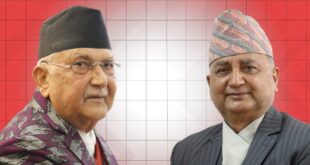Special Desk
With Mustapha Adib becoming the new prime minister, French President Emmanuel Macron has called on Lebanon to swiftly form government.
Lebanon designated its ambassador to Germany as the country’s new prime minister, as the nation still reels from a devastating economic crisis and the aftermath of a deadly explosion in the capital.
The last government resigned following the devastating explosion in the capital, Beirut, on 4 August killing at least 200 people were killed by the blast, caused by ammonium nitrate stored unsafely at the city’s port.
Mustapha Adib, 48, has served as Lebanese ambassador in Berlin since 2013. He emerged as the front-runner for the prime minister role, after four former Lebanese prime ministers threw their support behind him ahead of formal consultations.
Macron arrived in Beirut on Monday for his second visit since the deadly explosion. During his stay he is expected to push Lebanese politicians to tackle corruption and financial waste. Speaking to reporters, he said a new government should be formed “as soon as possible” – something that Adib has already promised.
But during his visit Macron met protesters chanting “no Adib” – a sign that Adib’s appointment is seen by some as a continuation of the country’s status quo.

Demonstrators have staged mass rallies across Lebanon since October, calling for a complete overhaul of the political system. Power is largely based on sectarian interests in the country, and successive government have been accused of ineffective and elitist leadership.
Political appointments and many jobs depend on belonging to one of Lebanon’s myriad religious communities, a situation which has led to patronage, cronyism and endemic corruption.
Adib is a doctorate in law and political science, and previously taught at universities in Lebanon and France. He has also served as an adviser to former Lebanese Prime Minister Najib Mikati.
Following his nomination, Adib said there was “a need to form a government in record time and to begin implementing reforms immediately, starting with an agreement with the International Monetary Fund”.
Until a new administration is agreed, outgoing Prime Minister Hassan Diab’s government will continue in a caretaker capacity.
 Jubilee Post News & Views
Jubilee Post News & Views





